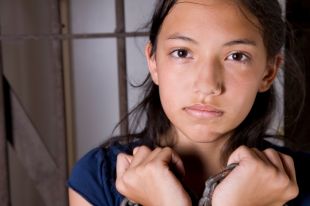Violence & Criminalization Featured, Violence & Criminalization Recently the Office of Juvenile Justice & Delinquency Prevention (OJJDP) published a summary about the needs of girls in conflict …
Violence & Criminalization
Featured, Violence & Criminalization
Recently the Office of Juvenile Justice & Delinquency Prevention (OJJDP) published a summary about the needs of girls in conflict with the law.
Research suggests that “girls are not more violent than before and confirm(s) that girls engage in far less crime and delinquency than boys for nearly every offense. It was also observed that mandatory arrest policies and other changes in the juvenile justice system are associated with the higher arrest rates for girls.”
National studies have found that when girls do offend, the rate at which they are being processed through the criminal legal system has increased dramatically over a very short period of time. Nationally, minor transgressions are being formally policed at an unprecedented rate (Schaffner, 2007).
Among young women in conflict with the law, black girls are overrepresented within the system and they receive harsher punishment than white girls (Moore and Padavic, 2010). Recent research also underscores that LGBTQ youth receive harsher punishment at school and in the criminal legal system. In fact, gay and lesbian teens in the United States are about 40 percent more likely than their straight peers to be punished by schools, police and the courts. According to Kathryn Himmelstein, lead author of the study published in the journal Pediatrics, “The most striking difference was for lesbian and bisexual girls, and they were two to three times as likely as girls with similar behavior to be punished.”
Girls in conflict with the law experience violence at all levels. For example, the topic of sexual violence in the lives of young women and its connection to future incarceration is sometimes referred to as the Girl’s Prison Pipeline. It is impossible to have a conversation about young women in conflict with the law without addressing their early histories as survivors of sexual violence. Once girls become enmeshed with the juvenile justice system, they continue to be exposed to various forms of violence (including systemic violence).
As you look through the other parts of this section, we ask you to keep in mind the interconnections between the various forms of violence that young women experience. The criminalization of girls and young women is intricately tied to school-based violence, reproductive violence, and relationship abuse. It is our overall contention that compartmentalizing the forms of violence that young women experience prevents us from identifying relevant and workable solutions.
http://www.chitaskforce.org/criminalization/violence-criminalization/
Comment
© 2026 Created by Lucinda F. Boyd.
Powered by
![]()


You need to be a member of THE STREETS DON'T LOVE YOU BACK to add comments!
Join THE STREETS DON'T LOVE YOU BACK